I don’t feel to wish you anything for the next year, since Wishes are obvious, when war drones are flying in the near skies, and too many times Wishes were unfulfilled.On the contrary, I am calling for help. Don’t be afraid, this time I am not asking for money, though money is always indispensable to NGOs, and my activist’s duty is to remember that you know how to do it, by the proper forms on the SRI website main menu (Funding and SRI Crew).
Straight to the point. You likely know that 2026 is the year of the SRI IV World Congress (30 June – 4 July). As you likely know from our past 3 World Congresses, since 2011, every 5 years, we inflicted on ourselves a very hard and ambitious task: to assess the status of civilization, and indicate our priority goals to solve the main global issues. Of course, if you follow SRI, our papers, our campaigns and activities at UN COPUOS, IAF, outreach and public events, you know what our analysis and proposed strategy are. We already described them in our 2021 thesis document. Those forecasts are now more than confirmed – civilization risks an irreversible implosion – and the strategy to avoid such a scary fate is only one: to kick off civilian space development before 2030, relaunching economic growth at 2 figures, and making Earthly resource wars obsolete.
But, comparing today’s situation with that of 2021, we see enormous changes and differences. Terrible wars and genocides have begun, and don’t promise to end, in the heart of or at the neighbors of the “advanced” world, and many other forgotten conflicts are killing thousands of unreplaceable human lives, a clear symptom that the implosion already started.
Terrific technological advances are developing, first of all, artificial intelligence, so full of promises and threats.
The space economy is going to lead the possible sustainable development. Yet, both the mentioned vectors, AI and Space Economy, can be sustainable and lead the global sustainable development, only if civilian space development really starts. Yes, of course, the Space+AI investors could even point once again only to automated orbital and Moon development: that would be just another illusion, destined to bring about further economic “bubbles” to explode, reiterating further stages of the global development crisis. Why? Because Planet Earth cannot tolerate the current and growing level of anthropogenic pressure. That should be clear nowadays, but it is not. So, our main task is to develop proper outreach and explain it in simple and understandable words.
The point is not that our home planet is now poor in resources, though this is also true. Yet we have already seen that new fossil reserves are being discovered, and new (terrestrial) energy sources are also discovered, like vegetal fuels, photovoltaic, etc. Yet we have already seen that the energy demand coming from supercomputers to support AI, electronic money, and electric mobility is not sustainable by terrestrial sources. And the main point is that, even if terrestrial sources were available, the needed large industrial extraction processes are not sustainable. That’s why we need to move outside, developing data centers in space, and the main industrial development, too. To produce what? For which customers? For Earthly markets only? That would not relieve the pressure; that would even increase it. Any growth limited within Earth’s boundaries is unsustainable. Let alone the wars… Wars are over any criteria of sustainability, and a global war as it is nearing is simply incredible, worthy of psychiatric treatment for its main dealers.
Coming to my today concerns and sleepless nights. Are we, at SRI, able to draw a realistic description of today’s civilization status? And, even more important, are we able to define an actualized strategy, the best priorities to be pursued, to help humanity pass the 2025-2030 “Eye of the Needle”?
For some weeks, the SRI Board and the Space Renaissance Academy have been tackling this terrific task. And I have the thankless duty to try assembling different contributions and drafting a coherent thesis paper. I confess that any approach seems to me too poor, neglecting some important points, or giving too much relevance to some not really important ones.
Now, the Space Renaissance movement is larger than the SRI Board, Academy, and Membership. Very interesting discussions are raised each month in our SRI Open Forum. I have the very great pleasure and am proud to see that our Forum is also used by other sister organizations, such as AIAA, NSS, and other communities.
So I have decided to open this discussion and to ask all sincere space humanists to provide help on some key questions and issues.
We titled our Congress “The Quality of Life, on Earth and Beyond”. Clearly, we are talking about a 360° concept of quality of life, from the basic needs (food, clothes, shelter), to social and belonging needs, to the highest needs (self-realization and transcendent aims). What is your idea of the Quality of Life? Yes, my idea includes not only the acknowledged needs (physiological, social, and cultural). I might also refer to a famous slogan that says: “We don’t need only the bread, but also the roses!” Meaning that the superfluous is necessary. A hedonistic Western vision? Maybe, but nothing wrong, if we can provide a beautiful life for everybody… And that’s the concept that I had in mind, proposing the Quality of Life topic for our congress: space will make possible a beautiful life for everybody. Not just to survive, but to thrive, and to improve our quality of life.
Yes, I have proposed using Maslow’s criteria to try to read the reality, how the quality of life changed over the last 50 years. Some colleagues argumented that Maslow’s “pyramid of needs” suggests a hierarchical stratification of society, implying that one cannot achieve higher levels if one has not achieved the lower ones. Maslow never said that. He proposed his classification of human needs on a probabilistic statistical basis, not at all as a values classification. My personal opinion is that Maslow’s human needs classification is more complete than the Marxist one, which only focuses on the achievement of the basic needs (or maybe, being Marx’s literary production so large, let’s say that his epigones mainly focused on class differences, related to the basic needs).
However, it was said that there are many other philosophers and anthropologists who have provided tools to analyze and measure the progress or regress of civilization. Since I don’t aim to defend Maslow as our unique reference, I am first of all asking for some more references. Please provide concepts and useful tools for reading reality, not just authors. However, I’d like to point out that I consider Maslow’s philosophical and anthropological controbution relevant, though his studies were on psychology. And, however II, psychology is determinant for philosophy and human history (also think about Isaac Asdimov psychohistory).
It was also said that some excellent cases testify that reaching the highest self-realization goals is possible even in very poor conditions. Sure, in human history, we have saints, geniuses, and artists who were able to sublimate their poor living conditions and donate great philosophical concepts, beautiful artworks, or great cultural contributions. Yet, should we indicate those cases as a social model? Often, those great people deprived their families of the necessary things in order to pursue their ideals. I don’t want to denigrate their sacrifice, but neither would I like to suggest a model of society where people aiming high are constrained to renounce their basic needs to pursue their highest ideals. This is exactly the point where humanity’s expansion into space comes in, breaking the zero-sum game of a closed-world society!
When I proposed the Quality of Life as a title for our incoming congress, I had not Saints or Bohemians in my mind, but normal, average people. Normal, average people, at least in the so-called advanced societies, thanks to the industrial revolution and technological progress, were allowed to become aware of their cultural interests, and perhaps cultivate some cultural or artistic high-level objectives. That achievement, together with better housing, clothing, food, health systems, and the possibility to make their children study to achieve a higher social condition, improved their quality of life. Is such a process continuously going ahead in the present? Is it steady, or has it even inverted the march, heading now to social regression? I’d like to assess: has such improvement continued during the last, say, 20 years? Or has the progress in the closed world reached the bars of the cage? What are the main “key performance indicators” to assess the quality of life and social progress/regression? Number of graduates? Quality and availability of Health systems? Quality and availability of Education systems? Ease of establishment and access to the business environment for startups? Employment and opportunities for business?
Btw, my research evidenced a quite disappointing evaluation, made, not by us, but by the UN itself, about the achievement of the 17 SDGs, 10 years after the publication in 2025. 3 SDGs are showing clear regression (including the most worrying one, 16 Peace), 12 are steady, and only 2 show weak progress.
It was also observed that the sentiment of having no future, as described by some youth movements, e.g., “We don’t have planet B”, is prevailing in the western post-industrial world, while the emergent eastern Countries – India first – are quite different. Hope in the future and faith in progress are the most common feelings among the young generations in those Countries. Therefore, it seems that we need good contributions from the East of the world (of course, even to call it “East” is an Eurocentric geographic concept…), to get a really holistic view of the Civilization situation, and maybe different outreach strategies for different continents (not on the substance, but on the narrative style…).
However, it is very clear that the assessment of the status and perspective of Civilization is all but based on numbers and economic figures. Our future depends on the psychological perception of reality. The global data about the economy, ecology, climate change, progress, regression, and sustainability are the same at all latitudes, yet our perception is very different. We are facing a cusp in human history, but it is perceived differently in different parts of our world. How can we get in touch, discuss, and collaborate with all the sincere humanists of Planet Earth?
I know, my list of questions is largely incomplete! Please also suggest more criteria.
Answers are very welcome on our Forum (just ask to enter if you’re not already in): https://groups.google.com/g/sri-open-forum
Your paper abstracts for the Congress are very welcome too: https://2026.spacerenaissance.space/index.php/call-for-papers-abstract-submission/
Ad Astra! (hopefully)
Adriano V. Autino
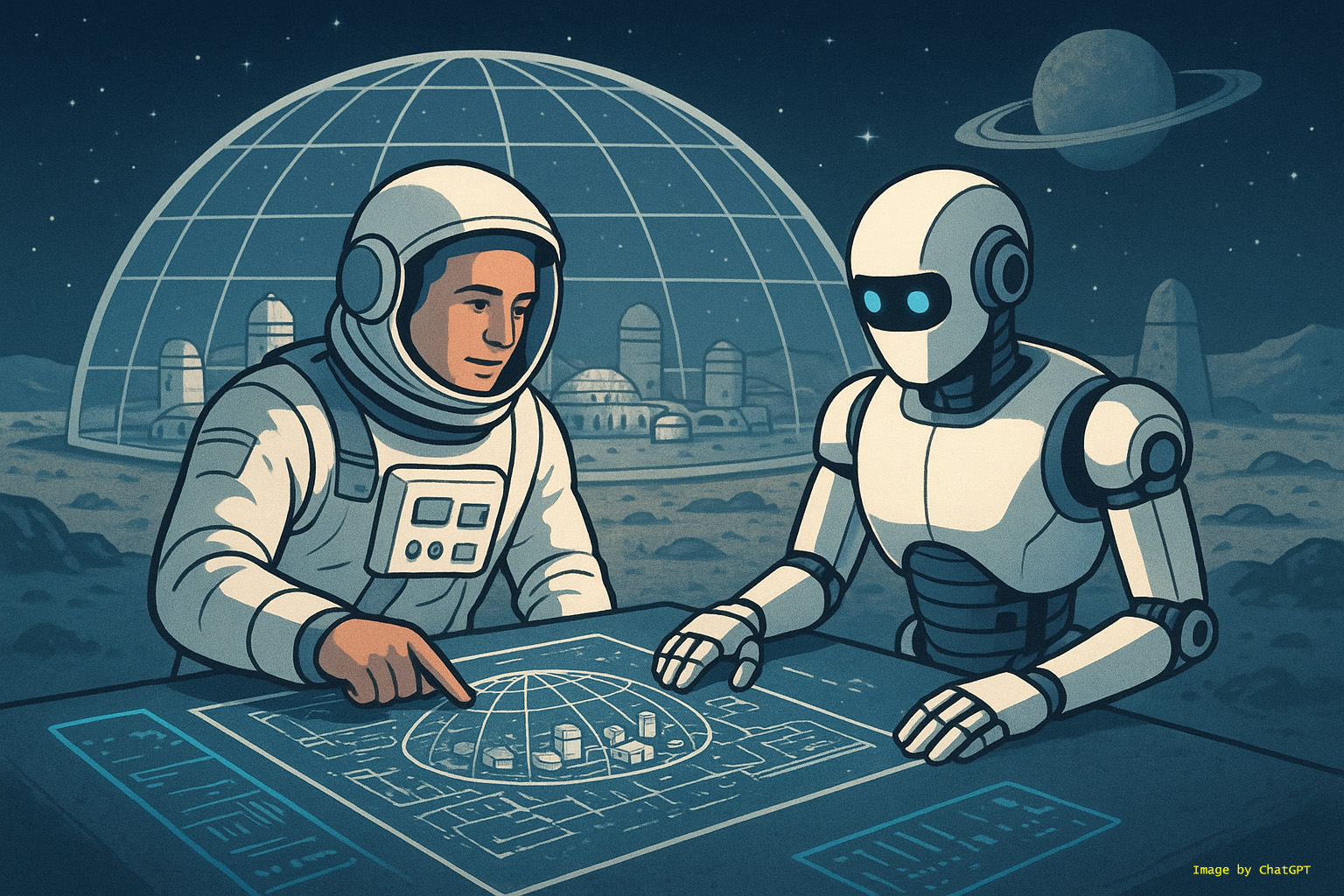

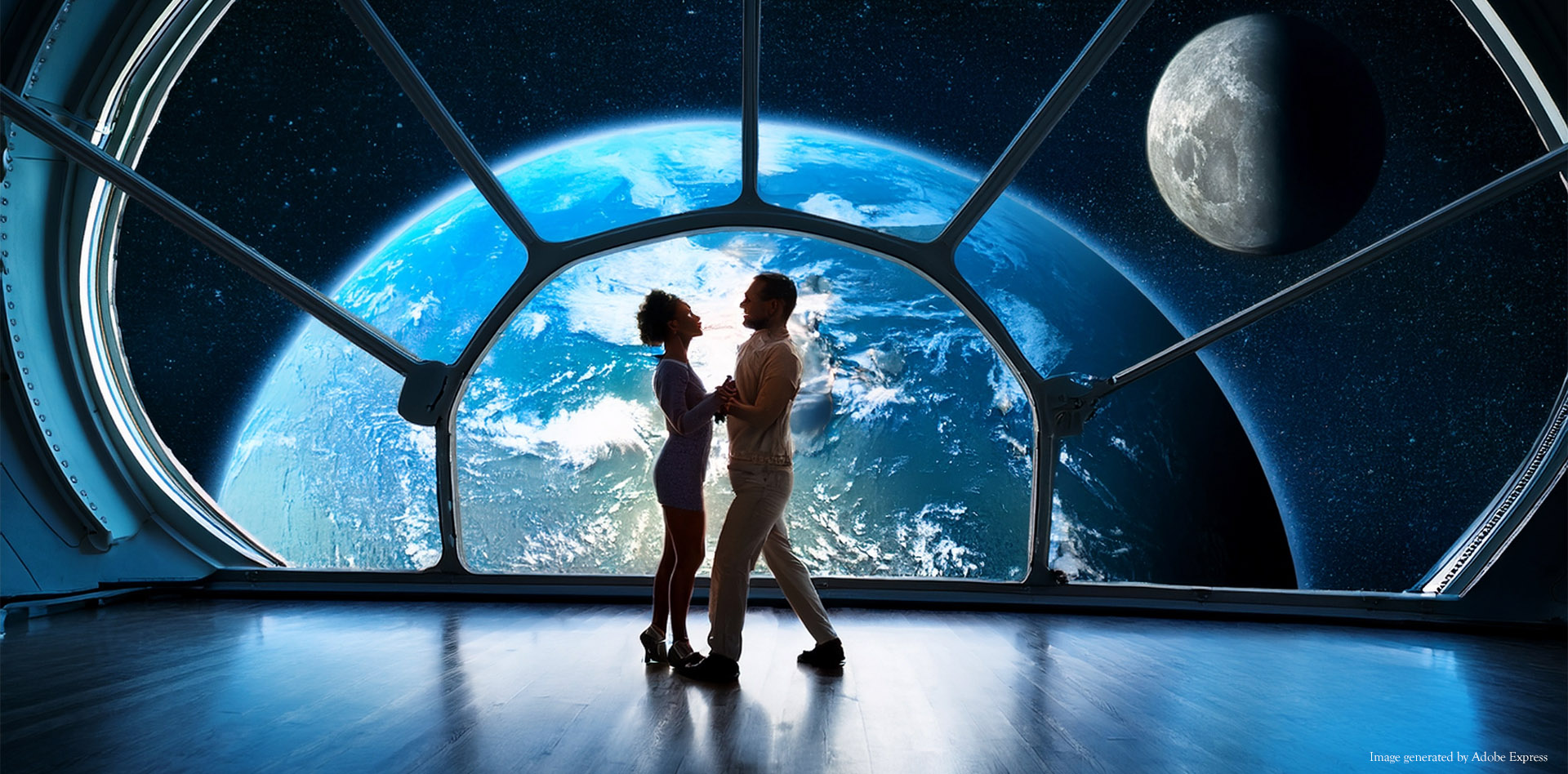

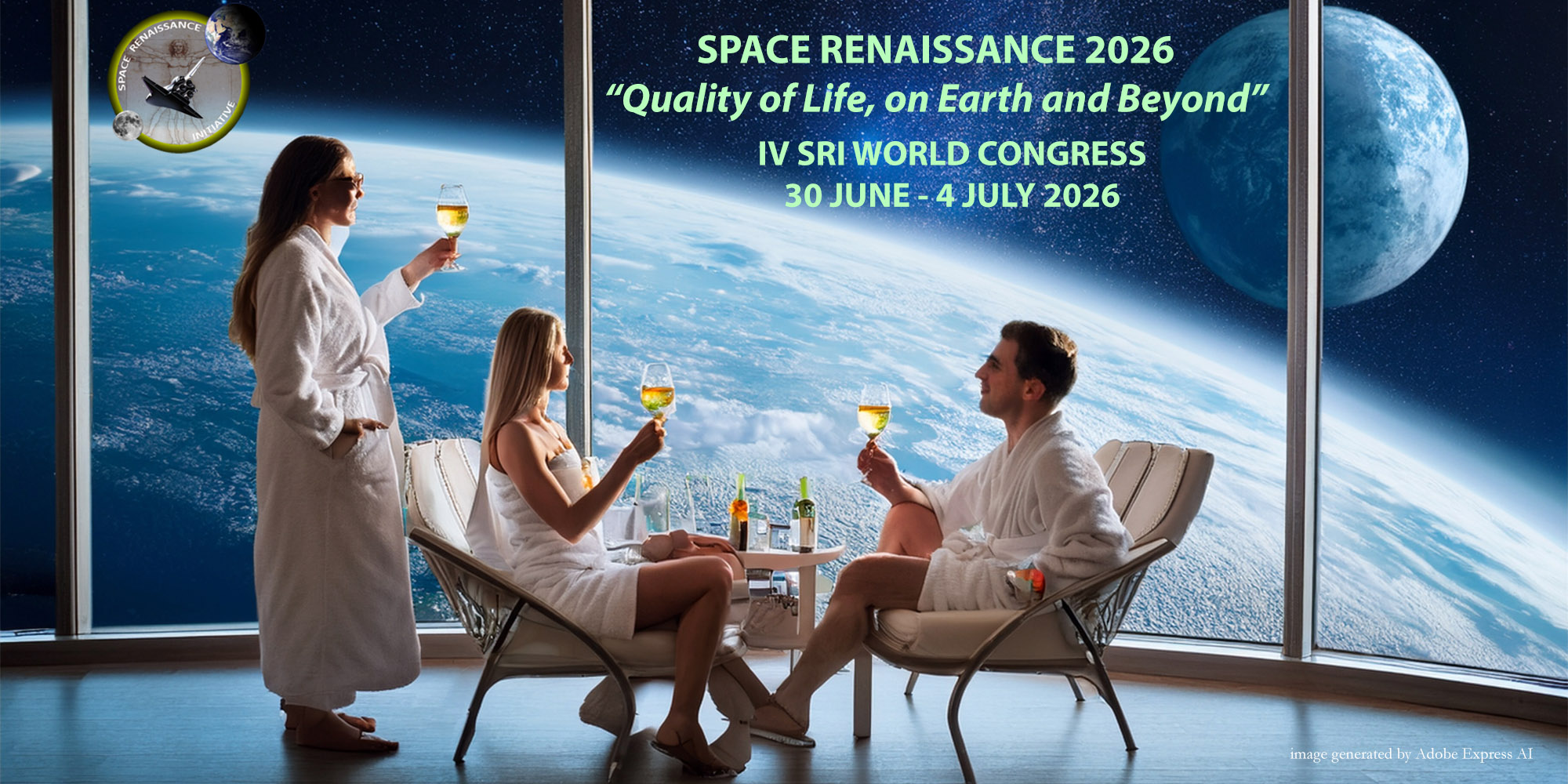
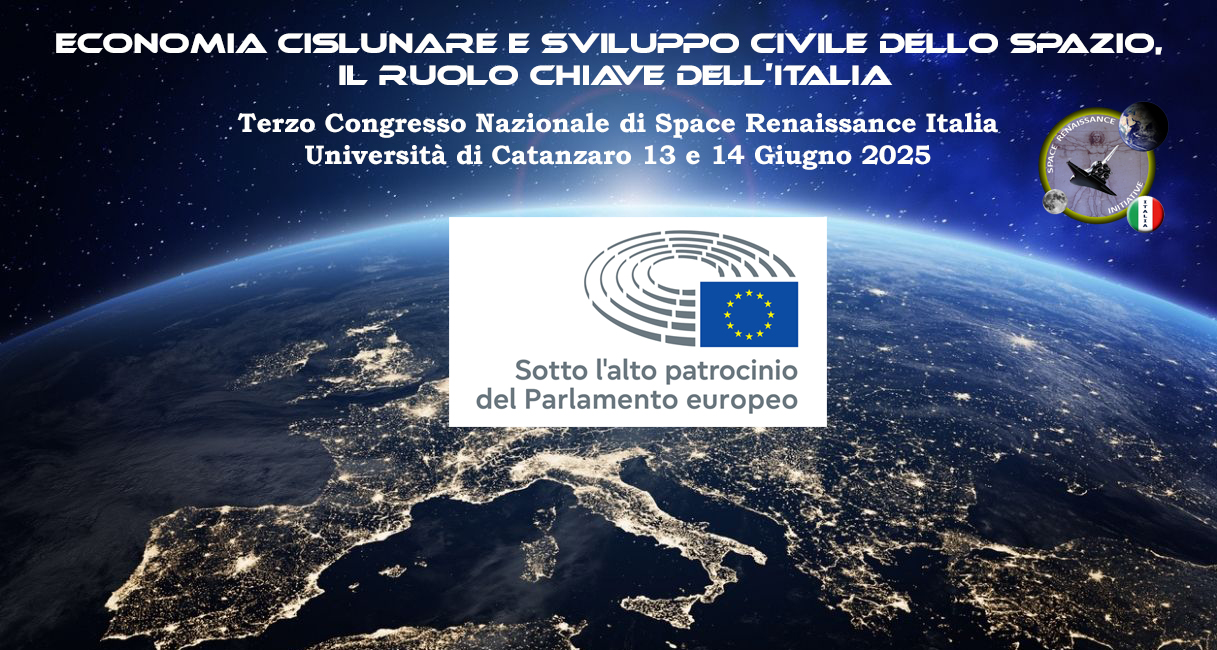



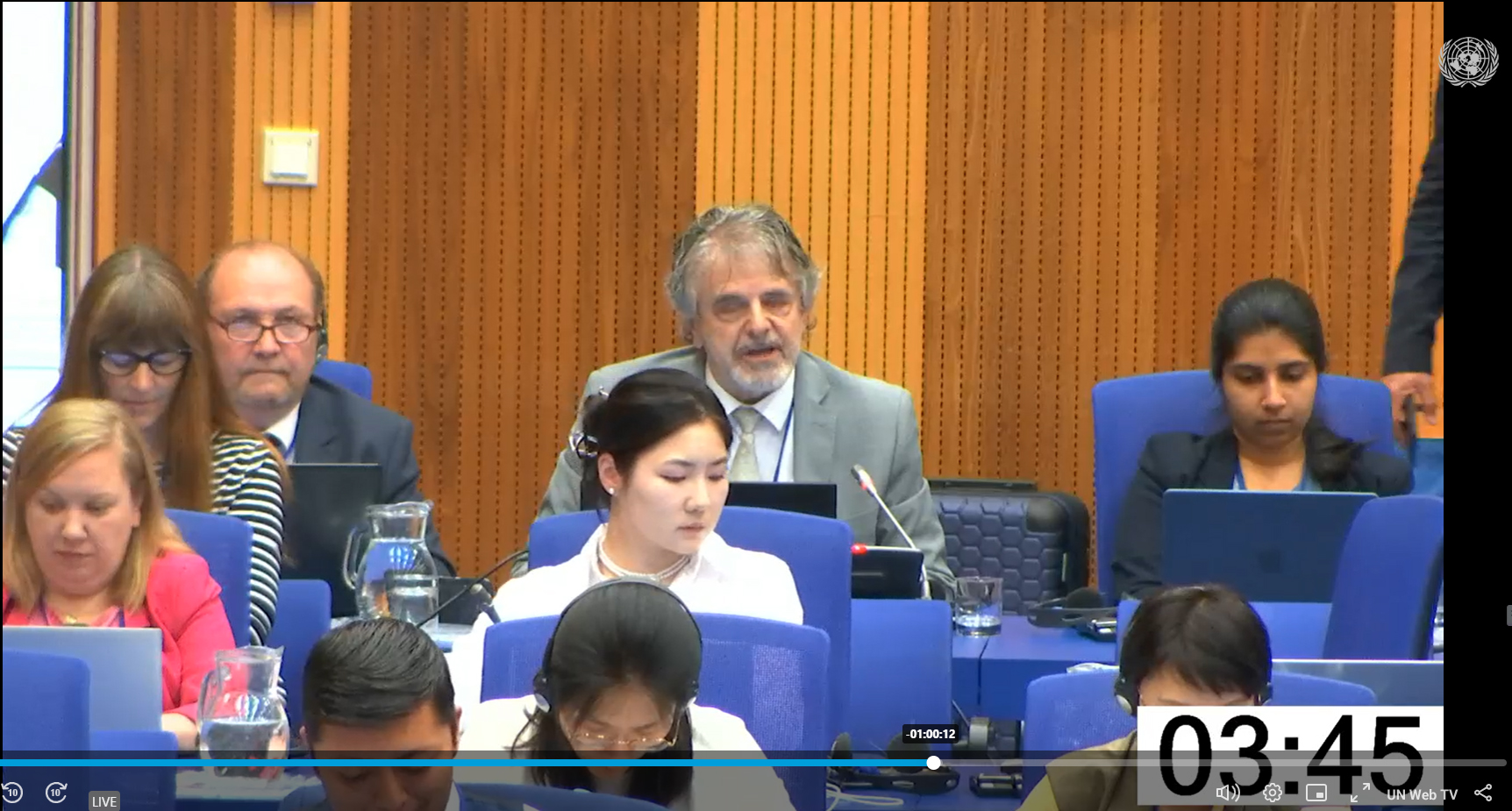




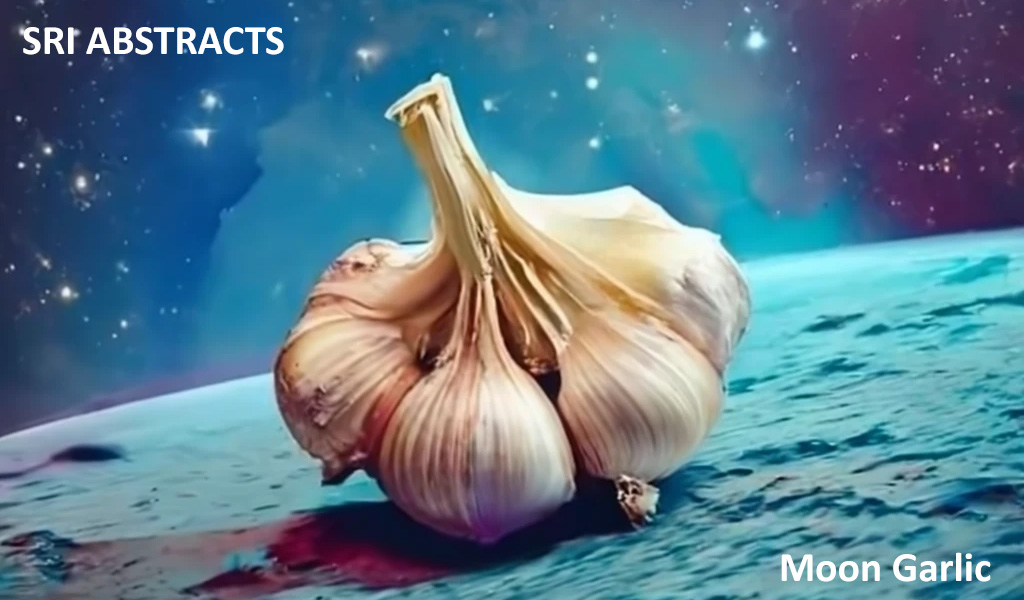





 Space Renaissance France (French Chapter of SRI)
Space Renaissance France (French Chapter of SRI)  Space Renaissance USA, Inc. (USA Chapter of SRI)
Space Renaissance USA, Inc. (USA Chapter of SRI) Space Renaissance (Italian Chapter of SRI)
Space Renaissance (Italian Chapter of SRI) Space Renaissance Academy
Space Renaissance Academy Space Renaissance Initiative Group
Space Renaissance Initiative Group